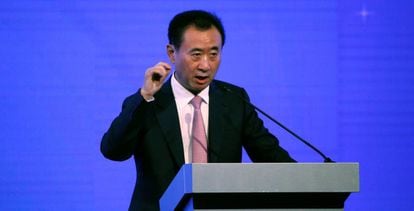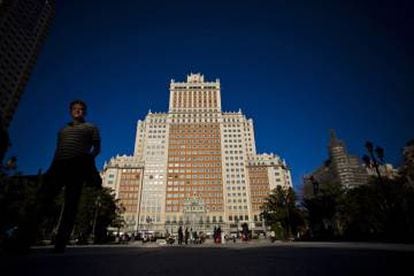Chinese investment in Spain quadrupled in 2016
Country seventh biggest recipient of funds from Asian nation in Europe, receiving €1.7 billion

Spain is increasingly attractive to Chinese investors. In 2016 they pumped €1.7 billion into the country, nearly four times more than the previous year. Spain has now become the seventh biggest recipient of Chinese investment in Europe, where Germany and Britain still attract the largest amounts. They were followed by Finland, Switzerland, Ireland and France, according to a report by Baker McKenzie.

Last year, investment focused on infrastructure and entertainment; there was also significant real estate activity by the Dalian Wanda group, headed by the business magnate Wang Jianlin.
The most important transaction by Chinese investors in Spain last year was the acquisition of Urbaser, the environmental unit of the ACS Group, by Firion Investment, an investment fund which China Tianying has a stake in. The fund paid over €1.17 billion, which could go up to €1.4 billion depending on Urbaser’s performance.
The Chinese government is encouraging its population to watch European soccer
The second biggest operation was the purchase of the soccer club RCD Espanyol for €200 million by Chen Yansheng, owner of toy car maker Rastar.
The report by Baker McKenzie also mentions a deal that is still in the pipeline, involving the purchase by the China Aviation Industry Corporation (AVIC) of Aritex, a tech firm owned by Spain’s Comsa, for €167 million.
According to Maite Díez, a partner at Baker McKenzie and an expert in Chinese investment, there is growing interest in Spain.

“They are attracted by European companies in several sectors such as the food industry, because that gives them access to the supply chains,” she notes. “The goal is to offer high-quality products in China, where there is a growing demand.”
This expert says that Chinese investors have made the most of the fall in prices triggered by the economic crisis in the West of 2008, and changed their strategy accordingly.
“Before this, their interest lay in Latin America and Africa, where public corporations were buying raw materials to supply their own growing population. They would finance it through the mass export of cheap products to the entire world,” she adds.
Soccer clubs
After the collapse of Lehman Brothers, private Chinese firms started buying industrial, infrastructure, environmental, tech and distribution companies with an international focus. They are also interested in real estate, in finance and in entertainment, a sector where they have snapped up hotel chains, movie theaters, shopping malls and soccer teams.
“The Chinese government is encouraging the creation of soccer schools in many regions, and encouraging its population to watch European soccer. That is why you see growing numbers of Spanish teams wearing Chinese advertising on their shirts, and playing schedules that are compatible with China’s time zone.”
English version by Susana Urra.












































